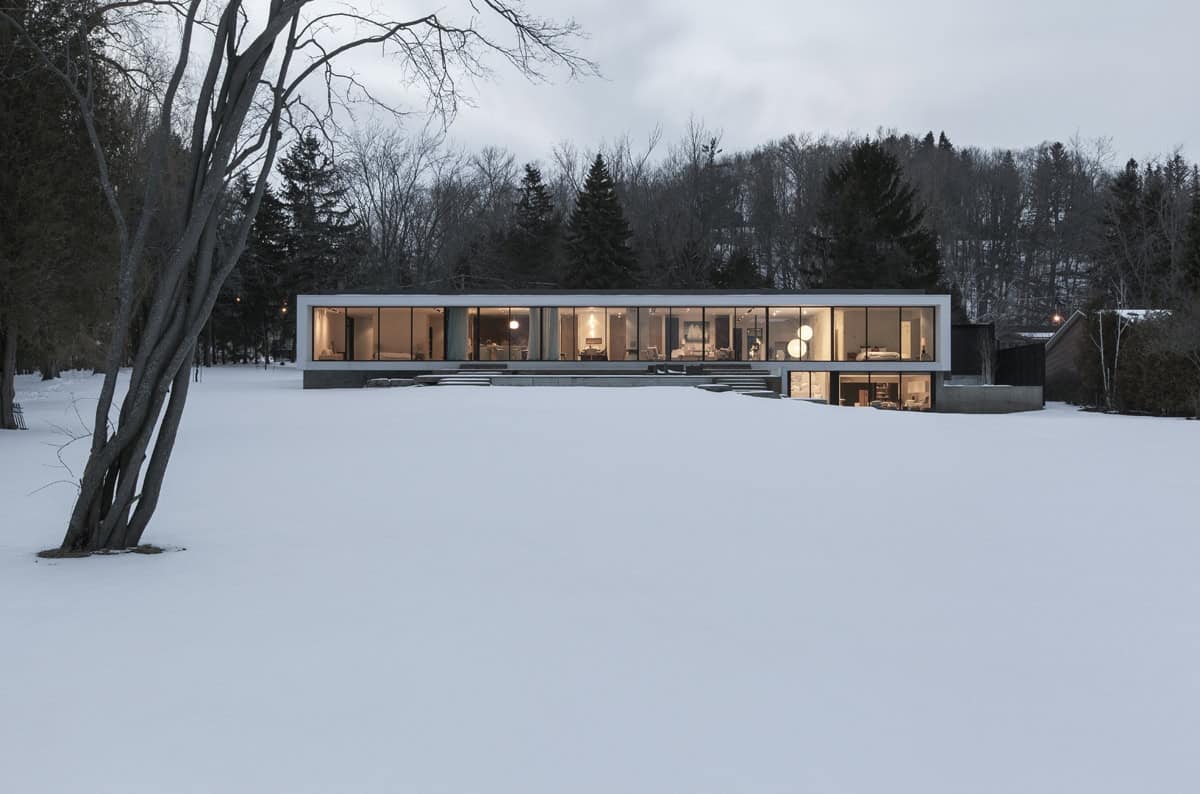Project: Opposite House
Architects: rzlbd
Location: Cliffcrest, Toronto, Canada
Area: 6,400 sq ft
Photographs by: Borzu Talaie, courtesy of rzlbd


Sitting at a lakefront site on the outskirts of Toronto, the Opposite House was completed by Reza Alibadi – rzlbd, a Canada-based architect. It is a home of vastly different halves which is the reason behind the name Opposite House.
The two sides vary greatly in style and layout – the northern half encompasses private, enclosed rooms whereas the spaces to the south are brighter and more public.
From the architects: “The Opposite House, is a commissioned private residence located on the Scarborough Bluffs, closer to the east edge of the Greater Toronto Area. The clients, a professional couple who both work from home and enjoy an active home entertainment lifestyle, were looking for a modern dwelling that would offer everything they might need and more, including enough space to transition into, if their family grows at a later time.
The new build sits partly on an old bungalow’s footprint, close to a quiet back-street, with a 2.7 acre site sloping down to the shore of Lake Ontario. To the northern street side, the house presents a purposely low, dark-brick profile – just a single, unobtrusive 146-foot long storey [equal to the length of an Airbus A321, the most efficient single-aisle jetliner ever built]; its stretched fuselage – measuring 146 feet], allowing for an unimpeded lake view from all points even in the north end of the property. To the southern lakefront, the home’s face opens into a 10-foot curtain wall, lozenged in white. The house’s interior is 6,400 sq-ft; though massive in size, it feels quite human in scale, the result of the space’s precise geometric parsing, something the architect refers to as mathematical poetry.”


From the architects: “Both outside and in, the Opposite House is at once familiar yet different, spectacular yet comfortable, private as well as public – presenting a study in subtly rendered juxtapositions. Two concepts are at work here: Louis Kahn’s “servant and served” maxim, wherein private, back-of-the-house functions are placed on one side, balanced by public relaxation on the other; and the “phototropic” nature of plants, which remain rooted in the earth while their heads blossom towards the sun – interpreted here as a north side wrapped in dark-black, textured brick and a south side presented in bright glass and smooth white stucco.
The main hall of the Opposite House forms a central nave that runs like a spine, east-west, along the home’s entire length, bracketed at either end by outsized windows. The foyer, with its 49-square-foot skylight, acts as a north-south transept, intersecting this main line, and descending via a stadium-stairway to the lower level. When the clients wish to entertain, guests can lounge on the agora seating and either admire the view from a dropped 20-foot double-height curtain wall or watch a show on the roll-down movie screen. The central nave and the north-south transept divide the building program into four main zones: 1- the garage, mudroom and storage, 2- a guest-room with an en-suite, 3- home offices/secondary bedrooms, bathroom facilities, and 4- the master bedroom, kitchen, dining, and living areas.”
This website uses cookies.